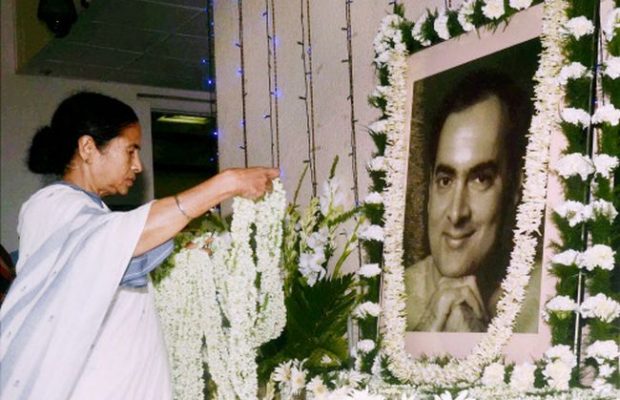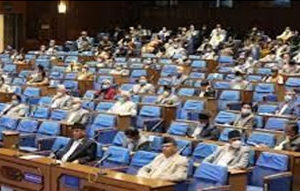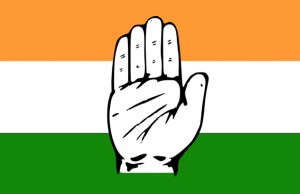Mamta has the ‘mamta’ after all

Those who think that personal ambitions are strong enough to dishevel any political equations must realise that personal sentiments have the potential to bring together forces, whose basic ideologies have similar foundations
Trinamool Congress supremo Mamata Banerjee has made it clear that Narendra Modi’s Bharatiya Janata Party (BJP) will have no place in her scheme of things for 2019. Her speech on the occasion of Martyr’s Day last Friday could be a precursor to a grand anti-Modi alliance in the next two and a half years.
Some suspect that Mamata has hidden ambitions to lead the country. But I have enough reasons to believe her claims of helping “her friends” and not wanting to become Prime Minister. I am sure Mamata’s “Bhag Modi Bhag” slogan will give sleepless nights to the BJP even beyond the confines of West Bengal. Reactionary forces are hoping that a division among secular parties due to personal ambitions will prevent the formation of a secular front before the next general elections. Under these circumstances, Mamata’s decision to stay in her hut and work for the state is an important initiative.
The West Bengal chief minister has the tremendous capacity to single-mindedly focus on the goal she decides for herself. As a journalist, I have seen Mamata attain a respectable place in Indian politics over the past three decades, despite several obstacles. I recall the days when she began her parliamentary stint. Back then, those who did not want a firebrand young girl from Bengal to emerge on the national scene had launched a vicious campaign against her.
But, her pro-active parliamentary performances were leaving a mark in the minds of the Congress leadership. The way Mamata raised issues related to the problems faced by industrial workers, unemployment, harassment of women and land registration to refugees in Bengal made several communists as well as Congress leaders cautious. So much so that so many of them openly told Mamata that they will not let her win next time.
Filled with insecurity, various Congress leaders had left no stone unturned to poison the ears of former Prime Minister Rajiv Gandhi against Mamata. But, the young Prime Minister had his own confidential process to assess the performance of his colleagues at all levels. He was impressed with Mamata’s calibre, honesty, and commitment. Rajiv Gandhi became such a strong shield in Mamata’s political career those days that no attack could harm her. Sitting in Parliament one afternoon, Mamata received a message from Rajiv to meet him immediately. After the meeting, she was given the post of general secretary with the All India Youth Congress.
There is one incident, which presents a glimpse of the substance with which Mamata is made of and the unstitched support she received from Rajiv Gandhi. Chowdhary Devi Lal, the leader of Lok Dal and a part of the anti-Congress alliance, was the Chief Minister of Haryana. It was in the second week of November 1988 that his great-grand-daughter-in-law, 19-year-old Supriya, was found dead in mysterious circumstances at his sprawling farmhouse on the outskirts of Chautala village. The incident did not find any mention when Parliament convened after the weekend. No one even mentioned about it keeping in view political compulsions. Mamata was not in Delhi that day. She reached the next day, and could not stop herself from raising the issue in Zero Hour with a strong demand for an inquiry by the Central Bureau of Investigation (CBI).
While the issue was being raised, there was a heavy commotion from the opposition parties. This made Mamata so angry that she rushed to the seat of senior opposition leader Madhu Dandvate, took off a silver bangle she used to wear back then, placed it on his desk and shouted: “If none of you have the guts to do anything about this incident, wear this bangle and sit at home.” A Telugu Desam Party member then came over to Mamata’s seat and placed his shoes on her desk. The issue created a huge uproar in the house. At 3 am, Mamata woke up to a call from Rajiv Gandhi. He congratulated her for upholding the honour of women. Moreover, Rajiv assured her that she will get all his support in this fight against injustice.
Even when out of power, Rajiv Gandhi always took care of his colleagues whenever they were in trouble. During a protest march in August 1990, Mamata received very serious injuries as a result of police brutality. Rajiv Gandhi even organised for her treatment at the best hospitals in the USA, though Mamata preferred to stay in Kolkata. I recall how Mamata was appointed as the president of Bengal Youth Congress by Rajiv Gandhi when she was still not discharged from the hospital, ignoring the strong opposition by a youth leader from South India, who was in-charge of West Bengal.
When Rajiv Gandhi died, she went into silence for a week. She could not eat a morsel for all those days and mourned in solitude. The only other time she went through such a period of distress was when her father died. “It had been so many years, but even today, I feel his (Rajiv Gandhi’s) presence in every step I take; he touched a chord that still plays the symphony of my life”, wrote Mamata just a few years back.
Those who think that personal ambitions are strong enough to dishevel any political equations must realise that personal sentiments have the potential to bring together forces whose basic ideologies have similar foundations. Keeping aside trivial issues, I know that she will be one of the torch bearers of the secular front.




You must be logged in to post a comment Login